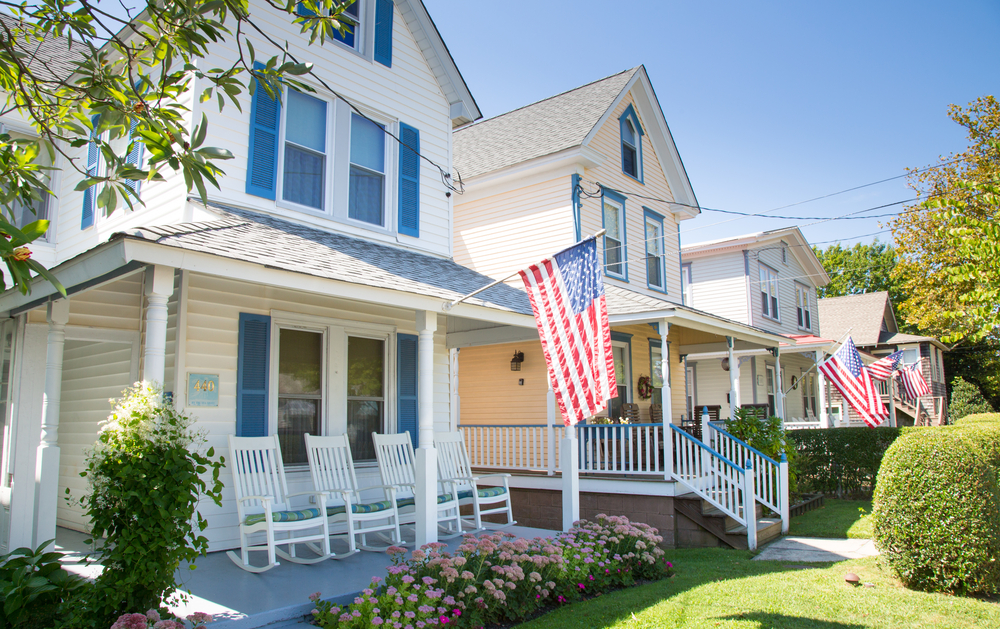Concerned about the humidity levels in your home? Air sealing could be a great option to help you solve the problem once and for all.
Air sealing your home is one of the most cost-effective ways to control the humidity and comfort levels in your home. It can also help reduce heating and cooling costs while making it a lot more comfortable thanks to less air moving into and out of your home.
Keeping The Hot Humid Air Out During the Summer
When it comes to summer, the humidity levels rise because warm air holds a lot more moisture. When you air-seal your home, it’s much easier to keep the warmer humid air out and keep the cooler, relatively dry conditioned air inside. The recommended RH (Relative Humidity) levels in the cooling season are <50% RH at 75°F indoor air temperature. When the temperature is higher, then you may want a lower relative humidity. This can be adjusted based on your personal preferences.
When it’s both warm and humid, it can cause a number of problems. The human body cools itself by evaporation from the skin. When air is humid, we are less able to evaporate the moisture on your skin. This sticky and hot atmosphere is uncomfortable for people. The key to avoiding this is keeping the indoor humidity levels in the comfort range so that you’re creating a hospitable indoor environment
High Humidity doesn’t just affect your body. When humidity levels indoors are high enough, condensation can occur on cooler surfaces. This is related to higher levels of moisture in the air. When this is prolonged, it could lead to mold problems, rotting wood, or even health-related issues such as respiratory problems.
Air Sealing Your Home for Winter Comfort
During the winter, most homes have a lot of heat transfer and air leakage between the outdoors and inside. This is from gaps, penetrations & cracks in the building shell and poorly insulated structures. When you turn on your home’s heating system, the heated air will escape out of various areas in your home and be replaced with cold, relatively dry air from the outside. This reduces the effectiveness of your heating (increasing your energy bills) and brings in cooler, relatively dry air from outside, causing a number of comfort-related problems.
Keeping Cold Air Out During the Winter
The cold winter air is generally dryer, leading to potential health issues and comfort-related concerns. Breathing dry air can cause respiratory ailments like asthma, it can cause nosebleeds, and it also dehydrates the body because your body fluids are quickly depleted.
This is why it’s a good idea to keep cold dry air out and warm relativly humid air in. By air-sealing your home, you can keep out the cold air and keep humid air from escaping through cracks and gaps in your home.
Relative humidity is how we measure humidity in the air at specific temperatures. As an example, in our NJ climate zone when the outside temperature is around 30°F, it’s common to aim for around 35% relative humidity inside your home which should be kept around 68°F to 72°F for maximum comfort. Above 35% and parts of the building will start to reach the dew point. This means that something inside the building is condensing, this causes moisture damage, potentially damaging paint, causing mold growth, and making your home feel very stuffy.
In short, you’ll want to aim for an indoor relative humidity that is no more than 5% higher than the temperature outside. Note that this generally only applies to the winter and there are different recommendations for the summer.
Benefits of Proper Air Sealing
When you air seal your home correctly, you can expect a number of different benefits that aren’t just related to humidity.
- Your energy efficiency will drastically improve because you don’t need to adjust your heating or cooling settings as often to accommodate the air transfers going around in your home. For example, you won’t need to turn up your heat as much or leave it on for longer during the winter because less warm relatively humid air is leaving, and less cold and dry air is coming inside. In the Summer cooling season, you won’t need to set the cooling temperature as low because a properly air-sealed home does a better job of maintaining humidity levels by preventing outside moisture from getting in.
- You’ll greatly improve the air quality in your home because you can aim for the perfect relative humidity. This means a balanced atmosphere that doesn’t have too little or too much moisture. Since air sealing your home means less leakage, you can fine-tune the humidity levels in your home and make it much easier for you to set the right level that is comfortable for you.
- Your HVAC equipment will work less when it’s not dealing with too much air leakage throughout the year. This will help your heating and cooling systems with better performance and reduce the amount of maintenance that you need to do. This lowers your bills, improves comfort, and means a lot less stress on your part.
- Air sealing can also give you more privacy. Sound waves move into and out of homes through gaps or cracks in your structure, around your windows, or even in the foundation. By air sealing your home, there are fewer gaps for sound waves to easily travel into and out of your home, meaning you’ll have more privacy. It also means that sounds from outside won’t affect your indoors as well. While this doesn’t have anything to do with humidity, it’s certainly an extra bonus to consider.
There are many great benefits to air sealing your home and they aren’t just related to humidity.
Does My Home Have A Humidity Problem?
Air sealing and insulating your home can be a great option regardless of whether you have humidity problems or not, but how do you know if you actually do have an issue?
One of the most common signs that you have a humidity problem at home is if you see condensation indoors, as the outside temperature drops. If you see a thin layer of vapor on glassware or windows, then it’s possible that you have excess humidity at home. If left unattended, you may notice mold spots in ceilings or along your walls. If your walls seem very moist and sometimes sweaty, then it’s another sign that you have high humidity levels indoors.
Signs of low humidity aren’t as easy to identify in household objects. Instead, low humidity usually causes comfort issues such as an itchy throat, dry lips or skin, and at times cause nosebleeds. It can also cause a buildup of static electricity. If these issues are affecting you, then it may be wise to consider air sealing your home so that you have an easier time controlling the humidity levels in your home.
How Does Air Sealing A House Work?
Air-sealing is a process that reduces the movement of air and water vapor. This means proper air sealing can reduce both air and moisture from escaping or entering your home. There are many different ways to achieve this based on what you’re looking for.
For instance, air leakage can occur due to cracks in a wall or gaps around windows due to poor installation. If a home isn’t built correctly or no care is taken to seal the areas around a window, then it can lead to air escaping or entering the home. By creating an air barrier using, foam, caulk, or weather stripping, you reduce the transfer of air, creating a tighter home. This doesn’t mean that the home is completely air-tight. There are always going to be places in your home where some air can pass through, and there’s nothing you can do to stop the outside air rushing in when you open a window or a door. However, you can go to great lengths to ensure that unwanted air leakages are completely stopped.
A good example of this is in the ceiling below your attic. Attic insulation should be installed because it reduces heat from transferring between the house and attic, as part of that process, the attic should be air-sealed, between house and attic. During the winter heating season warm air escapes and cold air enters through the little gaps at the top plates of the walls & the mechanical penetrations, increasing energy consumption and decreasing comfort. By air sealing and insulating, we can greatly reduce the volume of air exiting and entering our homes. This keeps the whole house much warmer and also helps you control the humidity levels.
So if you think that you might be facing humidity-related issues, high and /or low, at home, why not consider air sealing your house? It’s a fantastic way to help resolve comfort issues and it can also help you save your energy bills.





